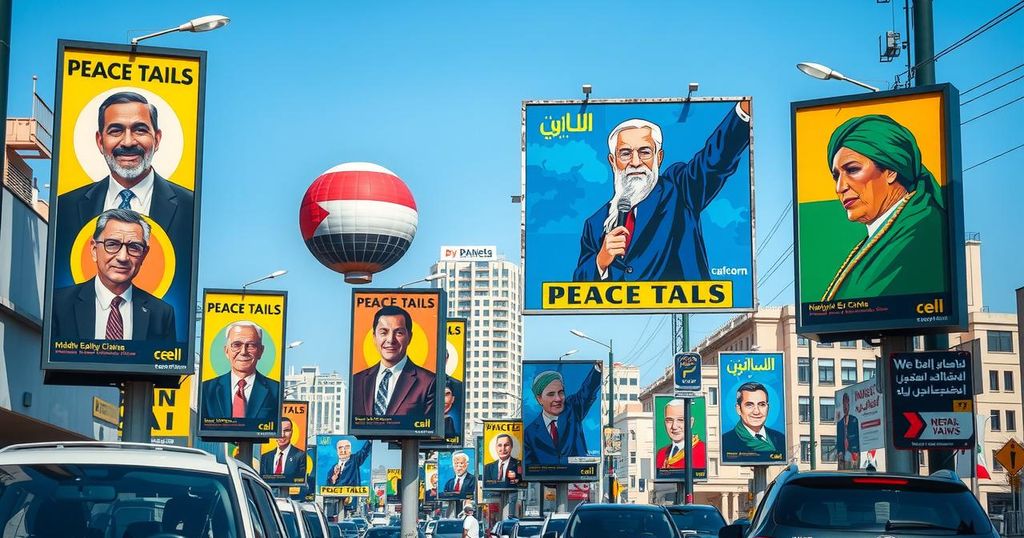World news
AFRICA, AHMED, AHMED AL - SHARAA, ASIA, BAHRAIN, BASHA, BASHAR ASSAD, BENJAMIN NETANYAHU, CHATHAM HOUSE, CONFLICT, DONALD TRUMP, DW, GOLAN HEIGHTS, HAMAS, HEZBOLLAH, IRAN, ISRAEL, LEBANON, MIDDLE EAST, MIDDLE EAST CONFLICT, MOROCCO, NEIL QUILLIAM, NORTH AFRICA, NORTH AFRICA PROGRAMME, NORTH AMERICA, PAKISTAN, SUDAN, SYRIA, TOM BARRACK, TRUMP, UNITED ARAB EMIRATES, UNITED NATIONS, UNITED STATES, US, WAR
Fatima Khan
0 Comments
Can the US Help Broker New Israeli Ties to Lebanon and Syria?
- Middle East diplomacy is gaining momentum after recent conflicts.
- US seeks to expand Abraham Accords to include Syria and Lebanon.
- The Israel-Syria conflict dates back to the 1967 war over the Golan Heights.
- Diplomatic efforts with Syria face significant historical challenges.
- Lebanon’s political climate complicates peace talks with Israel.
Middle East Diplomacy Surges After Recent Conflicts
Rise of diplomatic efforts across the Middle East following the recent conflict involving Iran, Israel, and the US has been notable. Israeli Prime Minister Benjamin Netanyahu has claimed that the recent military actions have paved the way to expand peace deals. Drawing on the “Abraham Accords,” which were established in 2020 to normalize relations between Israel and several Arab nations, new messages are meticulously displayed across billboards in Israel, showcasing leaders from Lebanon and Syria paired with US President Donald Trump under the slogan: “The Abraham Alliance: It’s Time for a New Middle East.” However, the nuances involved in engaging Syria or Lebanon are quite delicate, especially given the historical backdrop of their conflicts with Israel. Neil Quilliam from Chatham House offered insights highlighting that the prior signatories to the Abraham Accords were never truly in conflict, making these potential new ties significantly more complicated.
Historical Conflicts Complicate Potential Peace
Historically, Syria and Israel have been at war since 1967, sparked by the Israeli occupation of the Golan Heights, which still remains a critical issue today. In terms of peace negotiations, the situation is further complicated by a volatile landscape; recent shifts in Syrian leadership, particularly after President Ahmed al-Sharaa led a coalition that toppled Bashar Assad, raises questions about Israel’s intentions. Though Israeli military presence in Syria is ongoing, Trump’s administration appears to be making concerted efforts to pursue a security agreement with Syria. Syrian state media have expressed skepticism about progress towards a new agreement, emphasizing that for negotiations to advance, Israel must adhere to the longstanding 1974 disengagement agreement. Nonetheless, signals suggest that President al-Sharaa does not harbor animosity towards Israel, which leaves the door ajar for discussions regarding peace.
The complexities surrounding the potential for the US to advocate for new ties between Israel, Lebanon, and Syria are multifaceted. While opportunities for minor agreements, particularly with Syria, seem to present themselves, Lebanon’s conditions complicate prospects for peace significantly. Trump’s administration’s aim of reshaping the Middle East into a more stable region through the Abraham Accords is met with skepticism both regionally and internationally, with many questioning the viability of such ambitious goals given the historical animosities and the challenges at play.




Post Comment